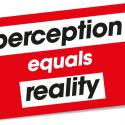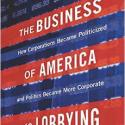making local government more ethical
Popular content
Last viewed:
- Contracting: A Growing Ethics Problem in the Age of Privatization
- Pension Board Reform in California
- Disappointing Report from Ethics Task Force in Phoenix
- Disclosure of Gifts -- Really Just from Companies?
- Ethics Complaints and Commendations
- Montreal's Charbonneau Commission Report Is Published
- A New Report and New Book on State and Federal Ethical Misconduct
- Superior Handling of a Conflict Matter
Recent blog posts
- Barriers to Civic Engagement -- a TED Talk from Dave Meslin
- Larry Lessig's 7 minute plenary speech at the #UNRIG conference in New Orleans
- Charleston Post Courier Article
- A new way to influence elections without transparency
- Congratulations to Robert Wechsler on his retirement!
- City Ethics' Director of Research Announces Retirement
- Appearance Is All We Have
- Announcing the Book "The Regulation of Local Lobbying"
- Efforts to Influence Through the News Media as Lobbying
- Gifts of Sexual Relations





